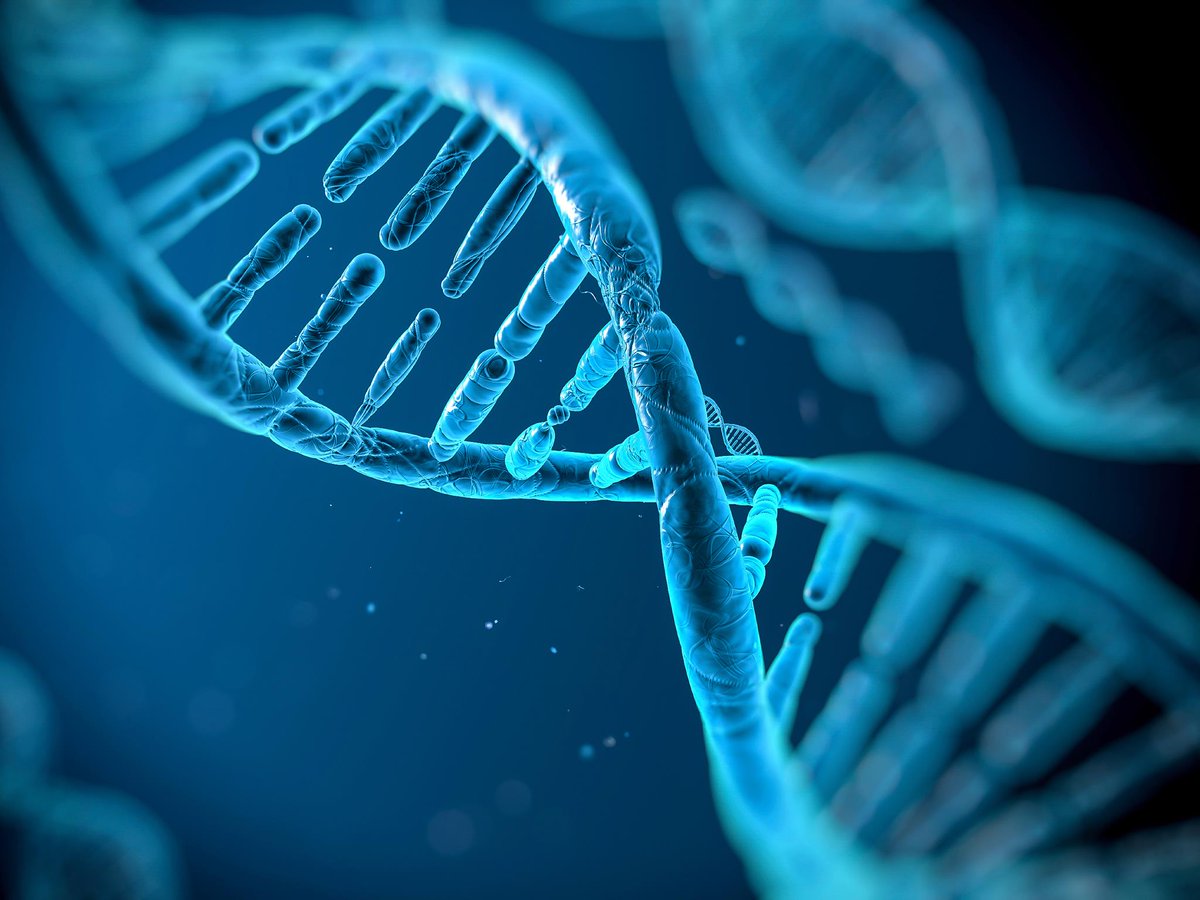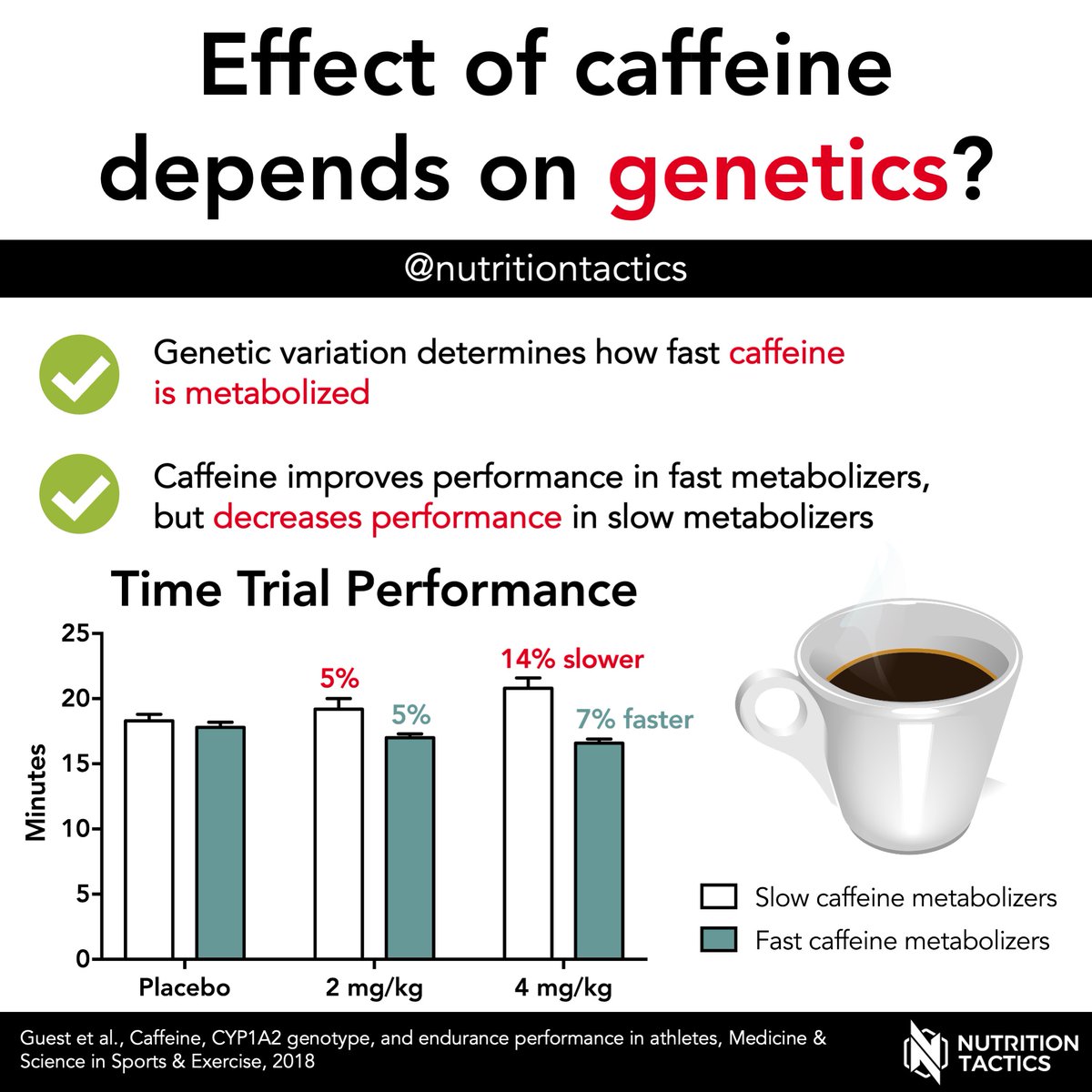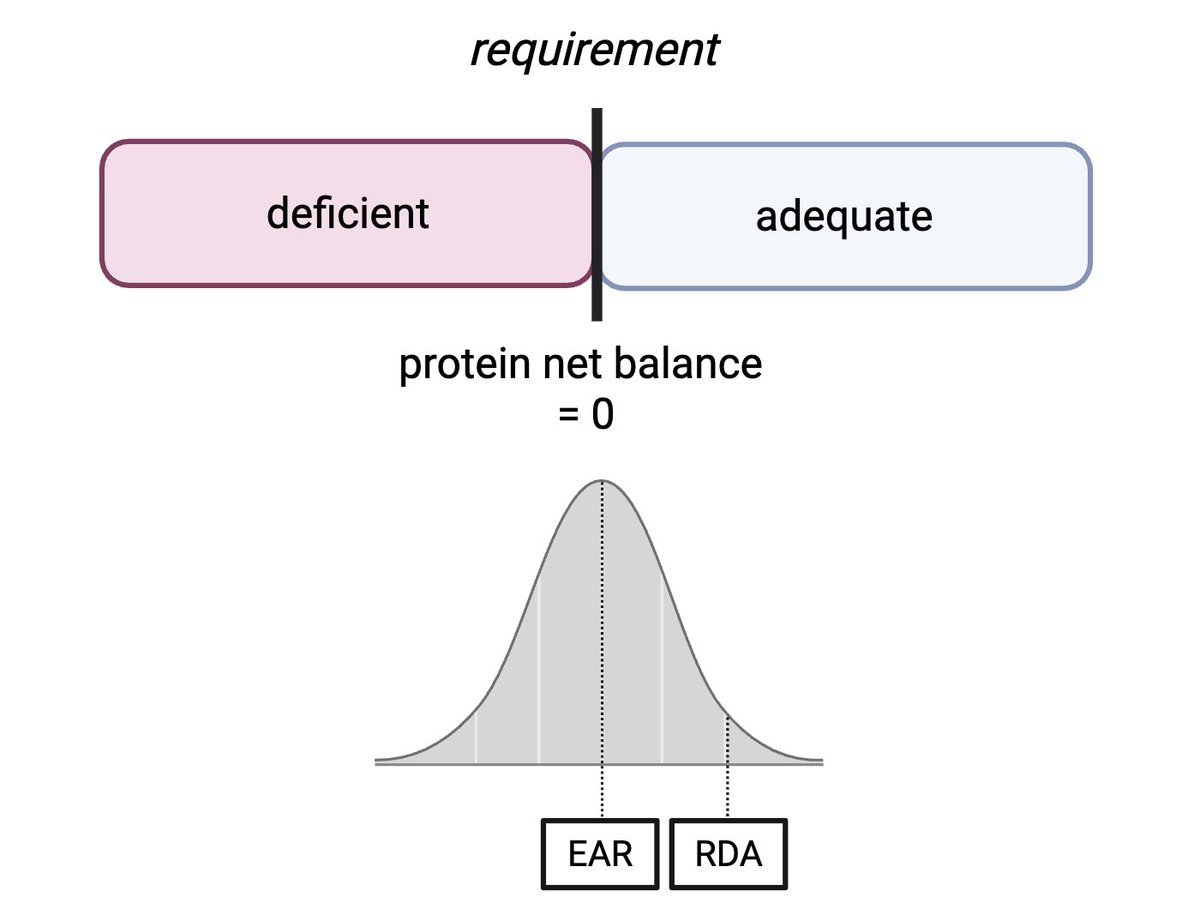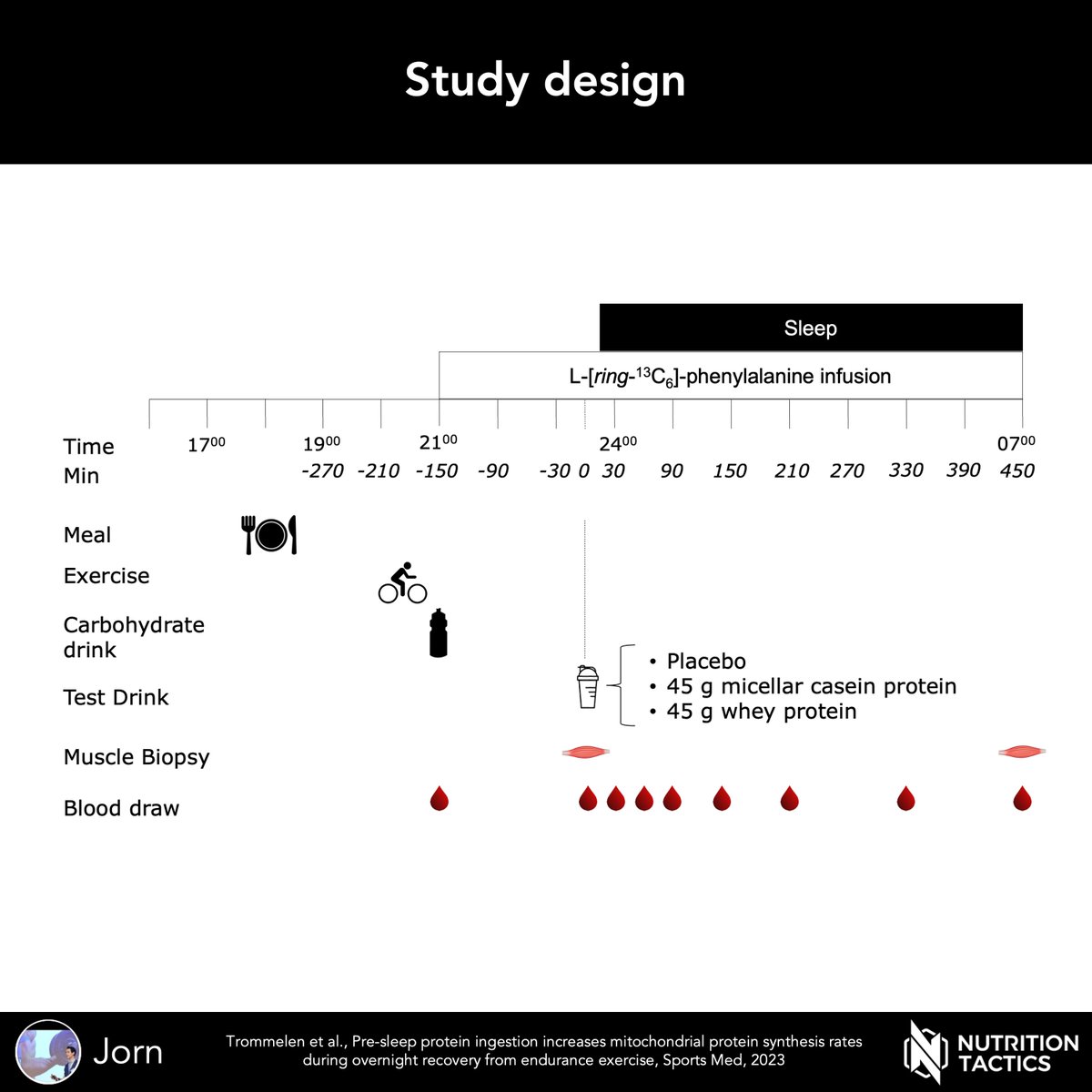Caffeine has shown to improve exercise performance. Therefore, caffeine is a popular supplement among athletes.
2/x
2/x

There appears to be much variation in the individual response to caffeine. This may be explained by variation in the CYP1A2 gene, which determines whether caffeine is metabolized fast or slow. Therefore, the effects of caffeine may depend on the activity of this gene.
3/x
3/x

This study investigated whether the impact of caffeine on endurance performance differed between slow and fast caffeine metabolizers. The subjects were male athletes and ingested different doses of caffeine (0, 2, or 4 mg/kg) ~30 min before a 10-km cycling time trial.
4/x
4/x
The fast metabolizers improved performance by 5% with the 2 mg/kg dose and 7% with the 4 mg/kg dose of caffeine.
However, the slow metabolizers had 5% worse performance with the 2 mg/kg dose and a 14% worse performance with the 4 mg/kg dose.
5/x
However, the slow metabolizers had 5% worse performance with the 2 mg/kg dose and a 14% worse performance with the 4 mg/kg dose.
5/x
Subjects who were neither fast nor slow caffeine metabolizers (‘in between’) did not show a difference in performance with caffeine.
6/x
6/x
It should be noted that only 8% of the participants were categorized as slow metabolizers. 49% were categorized as fast metabolizers, while 43% of the participants were ‘in between’.
7/x
7/x
In conclusion, the effect of caffeine differs between people. In most people, it improves or has no effect on exercise performance. In contrast, it decreases performance in some people.
Study:
ncbi.nlm.nih.gov/pubmed/29509641
Connect on insta:
instagram.com/nutritiontacti…
8/8
Study:
ncbi.nlm.nih.gov/pubmed/29509641
Connect on insta:
instagram.com/nutritiontacti…
8/8

• • •
Missing some Tweet in this thread? You can try to
force a refresh






















